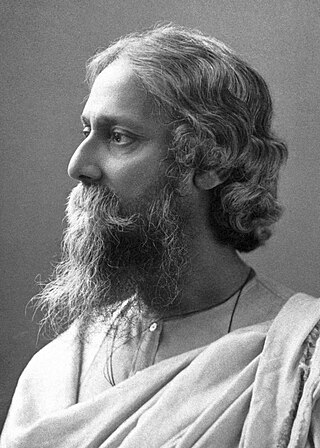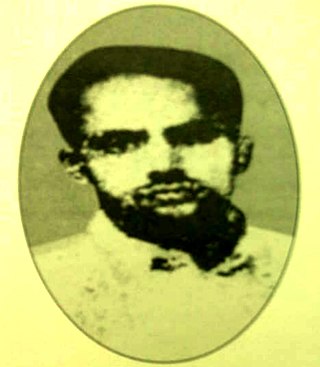
West Bengal is a state in the eastern portion of India. It is situated along the Bay of Bengal, along with a population of over 91 million inhabitants within an area of 88,752 km2 (34,267 sq mi) as of 2011. The population estimate as of 2023 is 102,552,787. West Bengal is the fourth-most populous and thirteenth-largest state by area in India, as well as the eighth-most populous country subdivision of the world. As a part of the Bengal region of the Indian subcontinent, it borders Bangladesh in the east, and Nepal and Bhutan in the north. It also borders the Indian states of Jharkhand, Odisha, Bihar, Sikkim and Assam. The state capital is Kolkata, the third-largest metropolis, and seventh largest city by population in India. West Bengal includes the Darjeeling Himalayan hill region, the Ganges delta, the Rarh region, the coastal Sundarbans and the Bay of Bengal. The state's main ethnic group are the Bengalis, with the Bengali Hindus forming the demographic majority.

The Bengali language movement was a political movement in former East Bengal advocating the recognition of the Bengali language as a co-lingua franca of the then-Dominion of Pakistan to allow its use in government affairs, the continuation of its use as a medium of education, its use in media, currency and stamps, and to maintain its writing in the Bengali script.

Dhaka Medical College and Hospital (DMCH) is a public medical college and hospital located in Dhaka, the capital city of Bangladesh. It houses a medical school as well as a tertiary care hospital on its campus.

The Shaheed Minar is a national monument in Dhaka, Bangladesh, established to commemorate those killed during the Bengali Language Movement demonstrations of 1952 in then East Pakistan.

The International Kolkata Book Fair is a winter fair in Kolkata. It is a unique book fair in the sense of not being a trade fair—the book fair is primarily for the general public rather than whole-sale distributors. It is the world's largest non-trade book fair, Asia's largest book fair and the most attended book fair. It is the world's third-largest annual conglomeration of books after the Frankfurt Book Fair and the London Book Fair. Many Kolkatans consider the book fair an inherent part of Kolkata, and instances of people visiting the fair every day during its duration are not uncommon. The fair offers a typical fairground experience with a book flavour—with picnickers, singer-songwriters, and candy floss vendors. With a total footfall of over 2 million people, it is world's largest book fair by attendance.

Maidan is a large urban area containing vast urban green space, parks, playgrounds and several public venues in the center of Kolkata, India. The area is spread over a total area of 1283 Acres. The urban green space of Maidan, which compromises an area of around 400 acres, is the largest urban park and urban green space in Kolkata city and second largest in the Kolkata metropolitan area as well as in India. Prior to 2013, before the creation of Eco Park it was the largest urban park in India. Its vast stretch of field that includes numerous sporting grounds, including the famous cricketing venue Eden Gardens, several football stadiums and the Kolkata Race Course.

Bengali literature denotes the body of writings in the Bengali language and which covers Old Bengali, Middle- Bengali and Modern Bengali with the changes through the passage of time and dynastic patronization or non-patronization. Bengali has developed over the course of roughly 1,300 years. If the emergence of the Bengali literature supposes to date back to roughly 650 AD, the development of Bengali literature claims to be 1600 years old. The earliest extant work in Bengali literature is the Charyapada, a collection of Buddhist mystic songs in Old Bengali dating back to the 10th and 11th centuries. The timeline of Bengali literature is divided into three periods: ancient (650–1200), medieval (1200–1800) and modern. Medieval Bengali literature consists of various poetic genres, including Hindu religious scriptures, Islamic epics, Vaishnava texts, translations of Arabic, Persian and Sanskrit texts, and secular texts by Muslim poets. Novels were introduced in the mid-19th century. Nobel laureate Rabindranath Tagore is the best known figure of Bengali literature to the world. Kazi Nazrul Islam, notable for his activism and anti-British literature, was described as the Rebel Poet and is now recognised as the National poet of Bangladesh.
Bhowanipore is a neighbourhood of South Kolkata, West Bengal, India.

Shafiur Rahman is considered in Bangladesh to be a martyr of the language movement which took place in the former East Pakistan.

Abdus Salam was a demonstrator who died during the Bengali Language Movement demonstrations which took place in the erstwhile East Bengal, Pakistan in 1952. He is considered a martyr in Bangladesh.

The Bengali Language Movement was a political effort in East Pakistan that advocated the adoption of Bengali as an official language. The movement faced violent opposition by the government before finally succeeding. Numerous songs, poems, novels and plays were written to commemorate the movement, as well as films and memoirs.

Insomnia was the first psychedelic rock band from Kolkata, West Bengal. The band's repertoire included both English and Bengali songs. The band has an album each in English and Bengali. Insomnia were also quite adept at executing live music for theatre, being part of the act itself, in plays such as Peacewards, a 3rd theatre version of Rokto Korobi and numerous other plays. "Opekkha" from their Bengali album Proloyer Shomoye was part of the original soundtrack of the first Bengali sex comedy movie Aamra.

Swastika Mukherjee is an Indian actress who mainly appears in Bengali and Hindi films and television. She is the daughter of actor Santu Mukhopadhyay.
Martyrs' Day are days declared in India to honour recognised martyrs of the nation.

The Bengali Language Movement of Barak Valley was a protest against the decision of the Government of Assam to make Assamese the only sole official language of the state, even though most Barak Valley residents speak Bengali. About 80% of the Valley's residents are ethnic Bengalis. In the Barak Valley region, the ethnic Bengali population consists of both Hindus and Muslims, who are almost equal in population and constitute the overwhelming majority of the population. There is also a substantial minority of native tribals and immigrants from other parts of India. The main incident took place on 19 May 1961 at Silchar railway station in which 11 ethnic Bengalis were killed by the Assam police.

Kamaleswar Mukherjee, M.B.B.S. is an Indian film director, actor, and physician known for his work in Bengali-language films. Films directed by him include Chander Pahar (2013), Meghe Dhaka Tara (2013), Amazon Obhijaan (2017) Cockpit (2017).

Baranagore Ramakrishna Mission Ashrama High School (H.S.) (BRKMAHS) is a senior secondary boys' school in Baranagar, Kolkata, India and a branch centre of Ramakrishna Math and Ramakrishna Mission, Belur Math. The school was founded in 1912, and is located at the northern outskirt of Kolkata, on the banks of the river Ganga. The school is run by the Baranagar Ramakrishna Mission Ashrama Authority under the umbrella of Ramakrishna Mission headquartered at Belur Math. Based on its performance of the students in the Xth standard board examination, the school is considered one of the very best schools in West Bengal. Department of Tourism listed it as one of the tourist spots of West Bengal.

Silchar railway station is a railway station situated at Tarapur, Silchar in Assam. The railway station falls under the jurisdiction of the Northeast Frontier Railway zone of the Indian Railways. The railway gauge functioned here is broad gauge. The station consists of single diesel line". It is one of the oldest railway station in India built under Assam Bengal Railway. The station has three platforms with a total of 14 originating trains. It serves Silchar, as well as the whole Barak Valley. Trains operate to different cities of India from Silchar including Delhi, Kolkata, Chennai, Visakhapatnam, Kanpur, Patna, Prayagraj, Hyderabad, Coimbatore, Vijayawada, Guwahati, Bhubaneswar, Thiruvananthapuram, Agartala & Dibrugarh. As of now, 170 stations across India are directly connected to Silchar railway station.

















